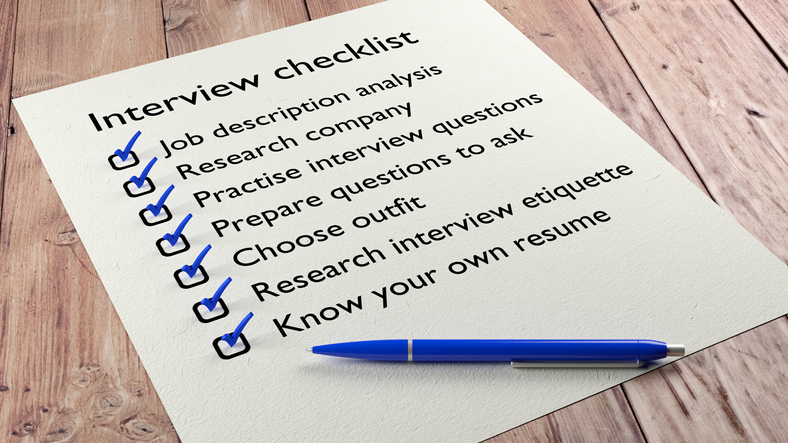After successfully completing your nurse practitioner education and passing your certification exam, you’ve finally been granted an interview to work for a prestigious organization in your desired specialty.
The last thing that stands in your way, however, is the dreaded interview.
As a newly minted DNP (Doctor of Nursing Practice) graduate and psychiatric-mental health nurse practitioner, I understand that the days leading up to an interview can evoke a plethora of emotions ranging from excitement to nervousness.
Luckily for you, I have compiled a list of six steps that may be helpful in preparing you for your first Nurse Practitioner interview.
1. Update your Resume or Curriculum Vitae (CV)
One of the things that many new grad nurse practitioners tend to neglect in their professional development is ensuring that their resume or curriculum vitae (CV) is updated consistently.
When you don’t take the time to update your resume regularly, it becomes very difficult to precisely remember notable achievements or projects that you may have already completed.
Therefore, having an updated resume or CV is extremely important because it demonstrates your commitment in showcasing your experience and accomplishments as accurately as possible to your future potential employer.
2. Do your Research
Just like studying for an exam to get a good grade, doing your research is also good practice prior to participating in an interview.
What is the mission and vision of the company that you’re applying for? What are their core values, and do they align with yours? What are the goals and purpose of the company?
These are all critical questions that you must ask yourself, and more importantly be comfortable answering prior to your interview date.
The more you know about a company and what they stand for, the easier it is for you to determine if it’s truly the right fit for you and your professional aspirations.
3. Dress for Success
Studies have long demonstrated that people make a judgment based on their first impression of you within the first seven seconds of interaction. This means that whether you’re on a job interview, at a business meeting, or attending a networking event, you have just a few seconds to make a good first impression and establish yourself as the successful person you strive to be.
Dressing for success means not only dressing well but also understanding the subtle messages you’re conveying based on your overall appearance.
Dressing well is crucial to the interview process because wearing the right clothes can ultimately make a strong visual statement on how you view yourself and the world around you.
4. Be your Authentic Self
Channeling your authenticity is a trait that many organizations and companies look for when interviewing potential candidates.
Being authentic is not just about what you think or say but also what you do and how you choose to function in the outside world.
As you interview, use this opportunity to really let your personality shine and don’t be afraid to be yourself. In the end, the most successful people are those who can tolerate and absorb criticism, admit their faults, and be accepting of others because they are not threatened by the fear of failure.
5. Ask Questions
When interviewing for a position, it’s important to remember to not be afraid and ask questions.
Asking questions is vital because it not only demonstrates your interest in the position but also your willingness to excel in the role that you’re applying for.
Keep in mind that the best questions to ask are focused, open-ended questions that provide greater insight into the company’s day-to-day operations as well as their culture.
6. Say “Thank You”
Lastly, once the interview is done, it is important to show your gratitude by sending a thoughtful email or thank you card.
Writing a thank you message is a great way to differentiate yourself from other candidates because it demonstrates your willingness to go the extra mile to show your appreciation for the time the interviewer spent with you.
Writing a good thank you note can be pivotal in demonstrating not only the caliber of your work but also the characteristics you may claim to have, such as: attention to detail, ability to communicate effectively, and professionalism.
It is also important to note that employers tend to view thank you notes as a visual representation of who you are as a potential employee.
Therefore, prior to sending a thank you note, take the time to reread it thoroughly to ensure that it is professional and uses proper spelling, grammar, and syntax.
- How to Protect your Mental Health Amidst the Coronavirus Pandemic - April 15, 2020
- 6 Successful Interview Tips That Every New Grad Nurse Practitioner Needs to Know - November 1, 2019
- The Art of De-escalation in Managing Aggressive Patients and Emotional Reactivity - September 9, 2019



